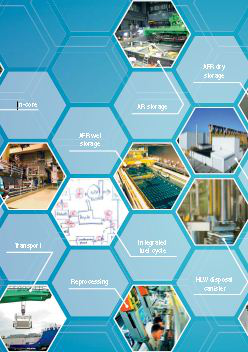Speaker
Prof.
Mohamed Abdel Geleel
(Head of Nuclear Fuel Cycle Department)
Description
Spent fuel is generated continually by operating nuclear reactors. It is stored in the reactor fuel storage pool for a period of time for cooling and then may be transferred to a designated wet or dry spent fuel storage facility, where it will await reprocessing or disposal (if it is considered to be radioactive waste). The spent fuel storage pools of some reactors have sufficient capacity to accommodate all the spent fuel that will be generated during the lifetime of the reactor. Specific safety consideration of spent fuel management in ten countries considered in this paper. Four of these countries reprocess their spent fuel (France, Japan, Russia, and the United Kingdom) and five are planning on direct disposal (Canada, Germany, the United States, Finland and Sweden). South Korea’s disposal plans are currently a subject of discussions with the United States in connection with the renewal of their bilateral agreement on nuclear cooperation. Law number 7 for the year 2010 (Egyptian nuclear law) addressing in some articles the safety consideration of spent fuel, policy and strategy and it will be discussed in the text. Egyptian Nuclear and Radiological Regulatory Authority (ENRRA) established draft regulation for management of spent nuclear fuel storage. The Egyptian regulations are guided by the recommendation of IAEA safety standard. More details about the Egyptian regulations on the safety of spent fuel storage will be discussed in the full text.
Country/ int. organization
Egypt/Nuclear and Radiological Regulatory Authority, Nasr city, Cairo, Egypt
Author
Prof.
Mohamed Abdel Geleel
(Head of Nuclear Fuel Cycle Department)

